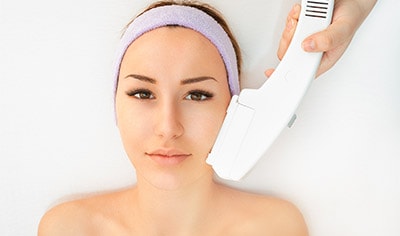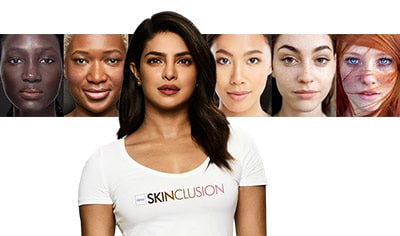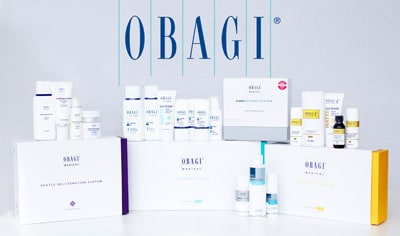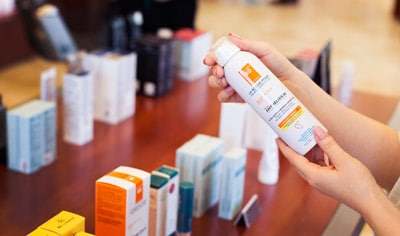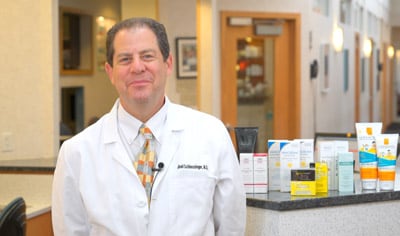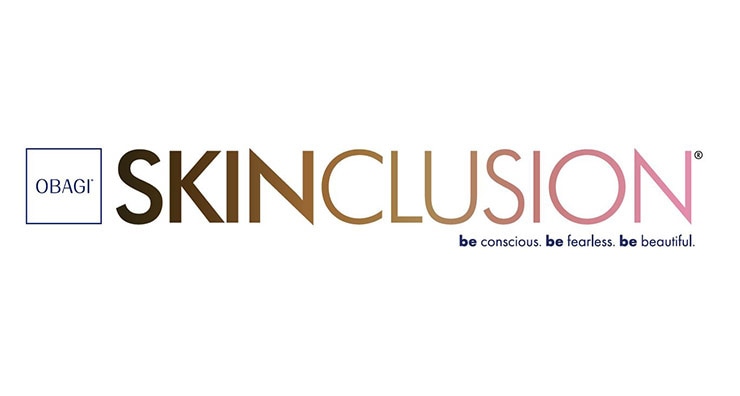
Recent events in our country and across the globe have given us all the opportunity to really listen, deeply consider and bring about true equity and inclusion for every individual—regardless of background, race, socio-economic status or politics. This installment of the LovelySkin blog has been scheduled for quite some time, but now, more than ever, we want to highlight its importance. We are humbled by the opportunity to advance our long, proud partnership with Obagi by joining the SKINCLUSION initiative and Obagi’s history of international efforts towards smarter, more thoughtful skin solutions for all.
“You wear your skin every day,” says Priyanka Chopra Jonas, actor, producer, activist and ambassador for Obagi’s SKINCLUSION campaign. The beautiful thing about skin? Everyone is different—and our differences make us beautiful.
With differences, however, often comes unconscious bias. Unconscious bias is defined as an attitude or stereotype that is outside of our awareness. They are often unintentional or automatic and are unique to each person—influenced by our backgrounds, personal experiences and cultural environment.
Unconscious bias can cause “blind spots,” which prevent us from sharing the beautiful humanity we all share. By recognizing and overcoming our unconscious biases, we can choose to “be conscious, be fearless and be beautiful,” which is the tagline for Obagi’s SKINCLUSION Initiative.
Introducing SKINCLUSION
As part of their 30-year commitment to inclusion and diversity over every aspect of their business from the culture to the products they develop, Obagi developed the SKINCLUSION campaign to elevate the global discussion about inclusivity and diversity.
Its purpose is to encourage us all to recognize—and challenge—our own unconscious biases, preventing “blind spots” and allowing us to truly celebrate the beauty in our differences. An Obagi representative says,
“Current events reinforce the fact that there are segments of society that are fragmented and polarized. While it’s readily evident when biases are overtly expressed, many more may be unconscious and, therefore, hidden. The conversation about the value of diversity and inclusion, which is at the heart of the SKINCLUSION campaign, is more relevant now than it was when it was launched in 2019.”
Dr. Schlessinger, board-certified dermatologist and LovelySkin CEO, couldn’t agree more.
“I am so honored to be a part of this exciting campaign. The tragedies around the globe have encouraged us to listen, understand and break the cycle of injustice, and SKINCLUSION has helped advance that conversation. This is an initiative that truly matters, now more than ever.”
The conversation doesn’t stop there, either. Drs. Jeanine Downie and Deborah Sherman, both board-certified physicians that run their own dermatology and oculofacial surgery clinics, have partnered with SKINCLUSION to spread the word about the importance of diversity and inclusion in skin care as well as our day-to-day lives.
Dr. Downie explains that, as an African American woman, she notices unconscious biases every time she leaves her house. “What [the SKINCLUSION campaign and its partners are] specifically trying to do is make sure that pharmaceutical companies like Obagi test on all [Fitzpatrick] skin types.” Additionally, Dr. Downie encourages pharmaceutical and cosmeceutical companies to hire and promote people of color to higher-level positions, giving them the opportunity to be decision makers in forward-facing advertising, product development and testing, and company culture.
SKINCLUSION’s goal is to teach us about implicit biases that prevent us from recognizing the beauty in others’ differences. “We are working together to educate ourselves, educate others and be the change we want to see in the world. The conversation about diversity and inclusion is one that should happen both on a personal level as well as a professional level, and Obagi is helping ensure the dialogue is happening,” Dr. Sherman says.
To address the needs of all Fitzpatrick skin types, Drs. Downie and Sherman have developed entirely unique treatment plans in their clinic that address skin types across the Fitzpatrick Skin Spectrum.
What is the Fitzpatrick Skin Spectrum?
The Fitzpatrick Skin Spectrum is a system often used by skin care professionals to classify skin based on its reaction to UV rays. It was developed in 1975 by Harvard dermatologist Thomas B. Fitzpatrick, MD and is determined by the percentage of melanin in the skin.
Very dark skin, classified as skin type V or VI on the Fitzpatrick Skin Spectrum, has higher percentages of melanin than skin types I or II, which tend to burn more easily.
Priyanka Chopra-Jonas says, “Until my skin consultation, I didn’t realize that there were six different skin types on what’s called the Fitzpatrick Skin Spectrum. I found out that I’m skin type IV, and I learned about what Obagi products were right for me… It’s great to know that I am using products that are scientifically proven to work and made by a company that supports my values.”
Knowing your skin type (oily, dry, sensitive, sun damaged) in addition to where you fall in the Fitzpatrick Skin Spectrum can be helpful when choosing products because you can feel confident knowing they have been tested and proven to work on skin like yours. Your dermatologist, Dr. Downie says, will be able to determine your skin type to better tailor product recommendations.
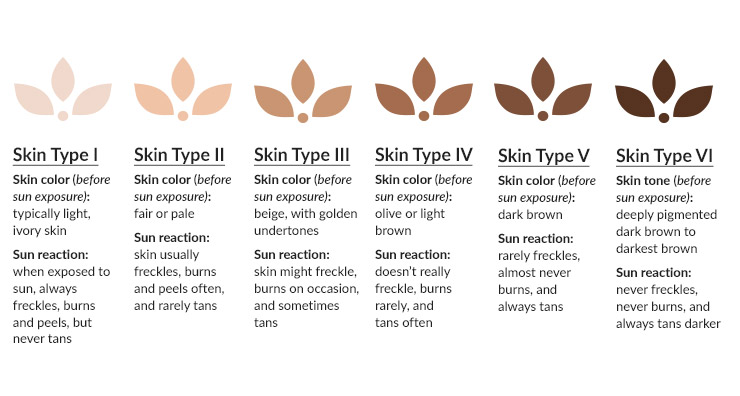
Obagi was the first medical skin care brand to design clinical research protocols to cover all six skin types across the Fitzpatrick Skin Spectrum. They wholeheartedly believe that protecting and nourishing your skin is dependent upon products that are highly effective, clinically proven and right for your skin tone, age and specific needs.
How can I spread awareness with SKINCLUSION?
SKINCLUSION is about more than celebrating diversity and inclusion in skin care. We need to stand together to recognize and celebrate our differences, but first, we must acknowledge and correct our “blind spots.”
To address this concern, Obagi partnered with the International Cultural Diversity Organization and Project Implicit, organizations which provide education about implicit bias through Implicit Association Tests.
If you’d like to identify and address your unconscious biases, take the Skin Tone Implicit Association Test. This test was designed to determine your biases by sorting photos and words into groups regarding various beliefs, attitudes and opinions.
It works by measuring the strength between concepts (such as dark or light skin) and personal evaluations (good and/or bad) to determine if a person has an implicit preference based on skin tone.
By taking the Skin Tone Implicit Association Test, you too can identify (and dispel!) your unconscious biases. Dr. Sherman says,
“Learning about implicit bias, and how it causes one to unintentionally act with prejudice, especially in times of intense emotion, has given me a new tool and something I can discuss with my staff, friends and family. Taking the Implicit Association Tests is something I’ve been able to encourage those around me to do to take a step towards change.”
SKINCLUSION was launched in 2019 to challenge us all to identify unconscious biases towards skin tones other than our own. In the future, Obagi says, “we plan to amplify this dialogue beyond skin tone to include biases such as gender, physical and mental challenges, sexual preference, etc. in the hopes that more people see the value in being more inclusive and equitable. At a time when it’s easy to feel that we are more divided than united, individual self-reflection is more important than ever as it is leads to realization, which is often the first step toward change.”
Join Obagi, Drs. Downie and Sherman, and LovelySkin in the journey to amplify the conversation! Learn more about SKINCLUSION and take the Skin Tone Implicit Association Test today!
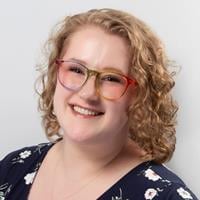
About the Author
Ashley is a content writer at LovelySkin and a self-declared beauty junkie. She enjoys trying out new lip products and spoiling her pets.
Other Posts by AshleyIntroducing the New SkinMedica TNS Advan...
Shield Skin Against Blue Light with Derm...
Follow us on social
Follow us on social networks and be one of the first to learn about sales, giveaways, and free samples

